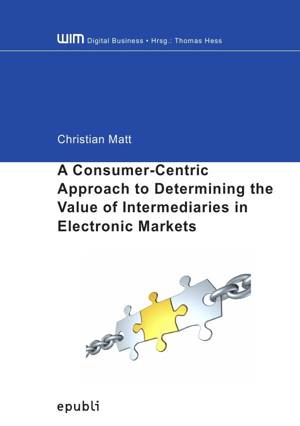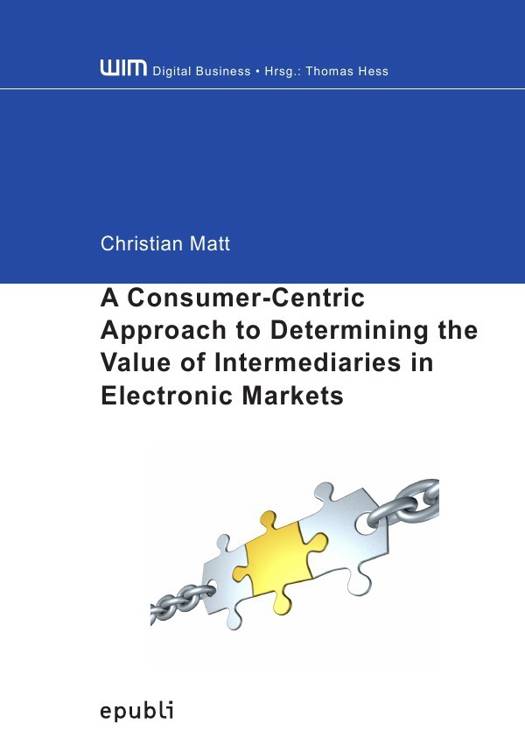
Bedankt voor het vertrouwen het afgelopen jaar! Om jou te bedanken bieden we GRATIS verzending (in België) aan op alles gedurende de hele maand januari.
- Afhalen na 1 uur in een winkel met voorraad
- In januari gratis thuislevering in België
- Ruim aanbod met 7 miljoen producten
Bedankt voor het vertrouwen het afgelopen jaar! Om jou te bedanken bieden we GRATIS verzending (in België) aan op alles gedurende de hele maand januari.
- Afhalen na 1 uur in een winkel met voorraad
- In januari gratis thuislevering in België
- Ruim aanbod met 7 miljoen producten
Zoeken
WIM Digital Business / A Consumer-Centric Approach to Determining the Value of Intermediaries in Electronic Markets
Dissertationsschrift
Christian Matt
€ 59,45
+ 118 punten
Omschrijving
Early research in e-commerce has frequently postulated the decline of electronic intermediaries due to an overall decrease of transaction costs in electronic markets. Almost 20 years later, intermediaries still play a major role in many electronic markets. Some of these, such as the Apple iTunes Store, even possess a market power that is higher than those of any comparable intermediaries in the physical world.Research has so far found only partial answers to explain this development. Previous studies that sought to assess the economic value of intermediaries mostly applied qualitative methodology, or adopted a market-based approach. At the same time, these studies generally neglected the role of consumers, and the new possibilities that e-commerce has opened up to them, e.g. the ease with which prices across a broad range of shops and products can now be compared.Based upon four empirical studies this work presents a novel approach to determining the economic value of intermediaries by putting consumers at the center of the equation. Here, relevant factors that determine consumers' decisions between intermediary and supplier online shops are identified and intermediaries' advantages are assessed in context. By adopting a consumer-centric perspective, new light is shed on the long-lasting debate over what exactly constitutes the value of intermediaries.
Specificaties
Betrokkenen
- Auteur(s):
- Uitgeverij:
Inhoud
- Aantal bladzijden:
- 176
- Taal:
- Engels
- Reeks:
- Reeksnummer:
- nr. 1
Eigenschappen
- Productcode (EAN):
- 9783844254242
- Uitvoering:
- Paperback
- Afmetingen:
- 148 mm x 210 mm
- Gewicht:
- 234 g

Alleen bij Standaard Boekhandel
+ 118 punten op je klantenkaart van Standaard Boekhandel
Beoordelingen
We publiceren alleen reviews die voldoen aan de voorwaarden voor reviews. Bekijk onze voorwaarden voor reviews.









